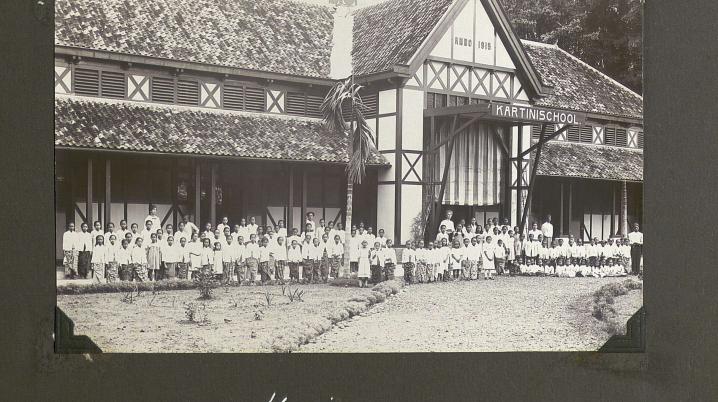
Kartini’s Letters included in UNESCO's Memory of the World Register
Located in the collections of the National Archives of the Netherlands, Leiden University Library and Arsip Nasional Republik Indonesia, the documents form the basis for understanding Kartini's life and ideas. The letters in the Netherlands show the foundation of her ideas. The impact her letters had on girls' education and the struggle for gender equality in Indonesia has been reflected in the archives located in Indonesia. With the addition of Kartini's letters to the MoW, the words of this advocate of equal rights for Indonesian girls and women have been formally registered as being documentary heritage of exceptional significance to the world.
The life of Raden Ajeng Kartini
Kartini was born on 21 April 1879 in Mayong village, Jepara, Central Java in the Dutch East Indies. Being the daughter of Jepara's regent, Kartini was able to attend the Europeesche Lagere School (ELS) in Batavia. As a young Indonesian woman, she was restricted in her development by both the traditional norms and values within the family and the colonial context in which she grew up. She was concerned about the social and educational constraints she and other Javanese women faced at the time.
Kartini and her sisters corresponded frequently with Dutch ladies, including Mien Bosch and Rosa Abendanon. Kartini received support from them in setting up small schools for Indonesian children and for the development of economic activities by Indonesian women. In 1903, the first Kartini school started, with education for Indonesian girls. Sadly, Kartini died in 1904 at the age of 25, shortly after the birth of her first child.
Kartini's legacy
Parts of her correspondences were published from 1911 onwards, first in Dutch and then in several other languages. Her ideas inspired many people in the Dutch East Indies, later Indonesia, and far beyond. In her letters, Kartini raised themes such as the (spiritual) elevation of her own people, the right to equal treatment, decolonization and self-government.
Under the auspices of the Kartini Fund, seven so-called Kartini schools were founded on Java (1913-1916). Entire generations of Indonesian girls could thus enjoy education. As a culmination of the recognition of Kartini's writings and ideals, President Soekarno proclaimed Kartini a national hero of Indonesia in 1964. To this day, Kartini's ideas remain relevant and an important source of inspiration for Indonesian and international debates on education, feminism and gender equality.
Quote
To close, a poignant quote from Kartini:
“[…] The young people were full of enthusiasm and joined him zealously. That young man will go to Europe and join Abdul Rivai and others to work together for our people. I have great sympathy and respect for Abdul Rivai. He was 16 years old when he learnt Dutch. He has become a doctor djawa, has high aspirations, wants to advance in the profession he loves. He worked hard and saved and now he is in Holl. med. stud. [i.e. studying medicine in Holland] at Amsterdam University. He has worked himself up. I hear the former minister Cramer supports him financially. But still nice of that young man, don't you think? And that [for] someone who first heard and learnt to speak Dutch at 16. He writes excellently, edits a Malay-Dutch magazine. And I hear he is starting up a great work: he is translating Zola's masterpieces into Malay and later perhaps also into Javanese. You see, it is to such things that we refresh our hearts. It is encouragement for the soul. A little while ago we received word that we will have three more pupils. Oh, how I moan about that little school. You must be tired of it already. Forgive me, but you know that what fills the heart, makes the mouth overflow! I hope you will receive this letter in best well-being. Bye dear Mien, a heartfelt thank you once again for all the love we have received from you. The best wishes from everyone here and a warm handshake with much love from your Kartini.”


